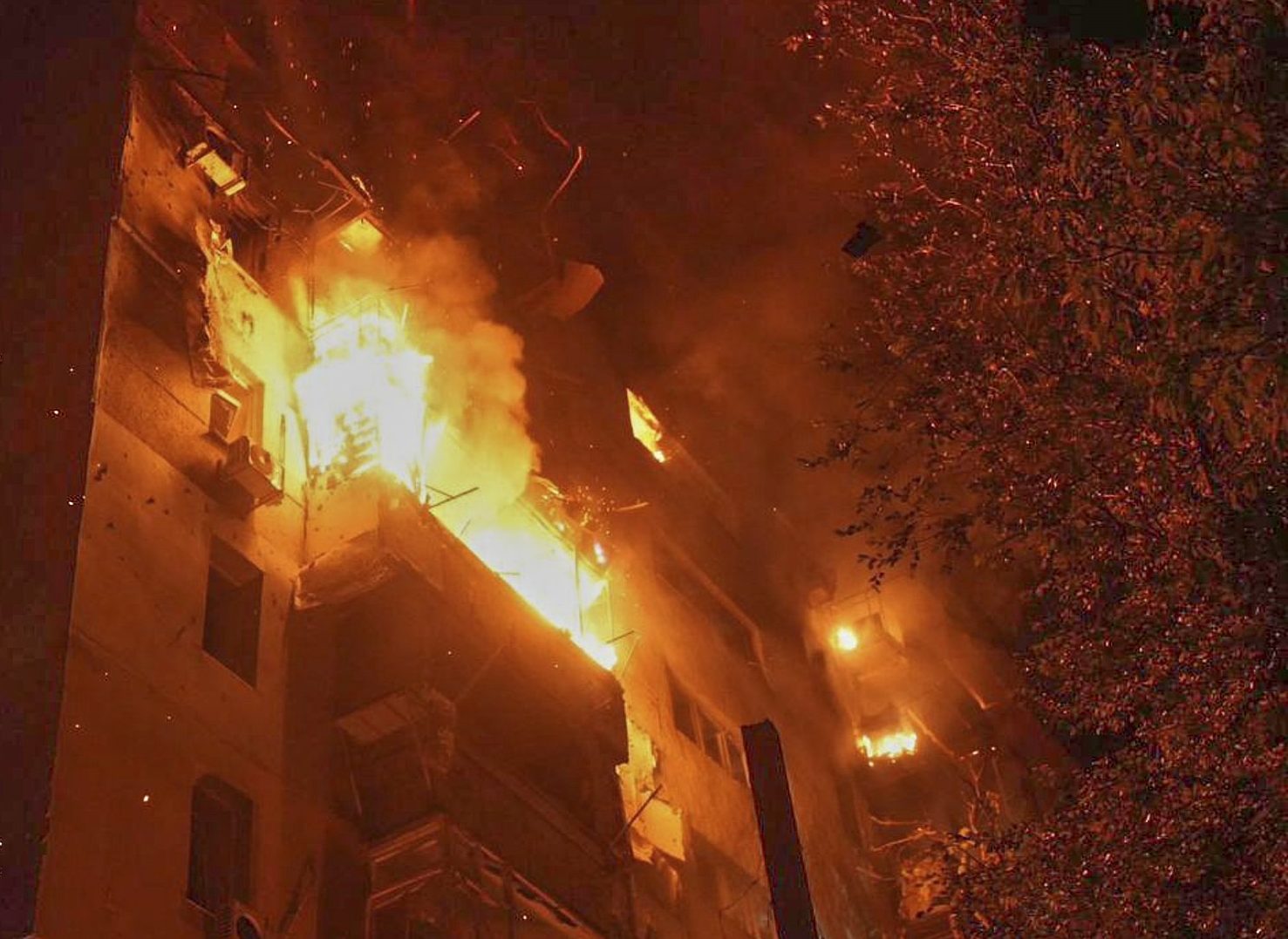Escalation of Conflict Between Ukraine and Russia
The ongoing conflict between Ukraine and Russia has reached a new level of intensity, with both sides engaging in aggressive military actions. NATO was compelled to adjust its war plans following a significant escalation in attacks by Russian forces on Ukrainian territory. The Russian military launched a devastating assault, targeting key military installations as well as civilian areas, with the attack lasting for five hours. This barrage involved a combination of missiles and drones, marking one of the most intense periods of fighting in recent weeks.
Despite the heavy bombardment, Russia itself faced retaliation from Ukrainian forces. For the third consecutive night, Zelenskyy’s government defied the instructions of former U.S. President Donald Trump, who had urged Ukraine not to target Moscow. This defiance highlights the complex geopolitical dynamics at play, as various international actors attempt to influence the course of the war.
Increased Attacks on Strategic Locations
In response to the escalating violence, the Kremlin intensified its offensive, particularly in the strategic city of Pavlohrad. This marked the worst attack on the region since the beginning of the conflict. The assault resulted in the destruction of a fire station and damage to a five-story residential building. These strikes underscore the growing threat to both military and civilian infrastructure.
In another incident, the port city of Odesa suffered significant damage due to drone and missile attacks. A residential apartment block and a pizzeria were set ablaze, resulting in the death of one woman. According to reports, up to 400 drones were deployed in this operation, prompting an emergency response from NATO. Fighter jets from the alliance were scrambled from military air bases to protect Poland’s border with Ukraine, which spans 332 miles.
Retaliatory Strikes and International Tensions
Ukraine did not remain passive in the face of these attacks. The country launched a drone strike on Moscow, with approximately 14 drones reportedly shot down by Russian air defenses. This exchange of fire has further complicated the already tense situation.
Earlier in the week, former U.S. President Trump issued a directive to Ukrainian President Volodymyr Zelenskyy, urging him not to target Moscow. This came after Trump had given Russia a 50-day deadline to end the war. However, this stance contradicted a report from the Financial Times, which suggested that Trump had privately asked Zelenskyy if he could use long-range missiles supplied by the U.S. to strike Moscow, thereby escalating the conflict.
Alleged Orders from Russian Forces
The conflict has also been marred by disturbing allegations involving the treatment of prisoners of war. According to the Ukrainian intelligence agency GUR, Russian soldiers were overheard receiving orders to behead a captured Ukrainian soldier and impale his head on a pike. These alleged instructions were reportedly issued by Russia’s notorious 155th Marine Brigade, which is suspected of multiple war crimes throughout the conflict.
The GUR claimed that the order was overheard two days ago on the battlefield. The message allegedly stated: “Cut off the head, impale it on a pike. Throw it the f*** away.” While the authenticity of this claim cannot be immediately verified, there have been previous instances of such atrocities. In August, footage emerged showing a Russian soldier brandishing what appeared to be the severed head of a Ukrainian soldier, impaled on a stake.
This footage, believed to have been filmed near a Russian border point in the Belgorod region, was reported as a war crime to the United Nations by Kyiv authorities. The soldier in the video was heard saying: “The dead men of the 155th Brigade of the Pacific Fleet salute you, Khokhols [Ukrainians].” He continued, “Today some of you have had your heads blown off by our pressure. It will be the same every time we meet. The dead have no pity. The dead men know no fear. The dead are coming for you, Khokhol.”
As the conflict continues to escalate, the international community remains deeply concerned about the humanitarian and security implications of these developments.







